|
Taking Up Space Has Never Tasted So Good
"Supper Club" is brash and delicious debut novel by Lara Williams, and an appropriate follow-up to her acclaimed short stories collection, "A Selfie as Big as the Ritz." At the center of this dark comedy is Roberta, who is somewhat awkward and shy. Like most women, she has always felt the need to not be seen or take up much space while navigating life and love, or the lack there of. She is on the threshold of thirty, friendless, and caught in between a lackluster job writing product descriptions for a fashion website and pursuing any semblance of personal and professional ambitions. The only thing more painfully boring than her current state of affairs, was her time in college ten years earlier. Enter new friend Stevie, an outgoing artist who quickly consumes Roberta’s world, igniting her to reach for more in life and to pursue her passion for food. Early on in their friendship that led to sharing a flat, Stevie spied out Roberta’s culinary skills coupled with her enjoyment in cooking. As such, Stevie encouraged Roberta to consider cooking professionally, and when one night artist friends of Stevie’s stopped by and were treated to a Roberta special dinner, they too endorsed the idea. Initially, Roberta balked at such a prospect, but soon enough, she comes around. In bed I blinked at the dark while Stevie shuddered to sleep. I thought back on the evening. How perfect and imperfect it had been, both in equal measure. How nourishing it was to cook for people I actually liked. I thought of the mountain of washing-u[ I had to do. The removal of a Matchstick that hd been trodden into the carpet. I wanted more evenings like that. In the morning I woke up, and idea was already in my head. “That’s what I want to do,” I told Stevie, shaking her shoulder. “What?” She asked hazily. “I think I want to start, like, a supper club?” I said … “But kind of a wild one.” And though I enjoyed cooking for Stevie, there was always a sense of deeply private communion to it. I liked the option to eat feverishly alone. But the thought of gathering people together and cooking for them felt plump with potential. A clan of my own that I could feed and nurture. An image of us, wild and hungry- and still expanding. The weight gain was Stevie’s idea. She wanted us to be living art projects. Thus begins a unique collaboration of feasts and friends, a food club taking place in random and sometimes ill-gotten-access locales. Such a story deserves more than a traditional review. After getting an opportunity to meet the Manchester, England-based author while she was on a U.S. book tour, I followed up with a few questions about her quirky, funny, yet touching novel that is as much a coming-of-age story as it is a testament to female empowerment. —————————————————————————————————————-- PF: Can you summarize the novel’s main character and what motivates her to co-create this unusual group? Please also expound on the group’s behavior during the meetings. LW: Supper Club is split into two timelines, and we first meet Roberta at university, and then again, ten years later, when she comes up with the idea for Supper Club. I wanted to spend the first timeline exploring the different ways women are tacitly encouraged and rewarded for taking up little space, and through that, explore ideas about the female body and appetite. The idea driving the Supper Club is, what if you lean into what you want and more, what if you actively take up more space than that to which you feel entitled. I was also interested in the novel as a transgressive text, and what a transgressive novel might look like from a female perspective. Women’s bodies are so often used as the tools through which men transgress, in books such as American Psycho or A Clockwork Orange, and so part of the Supper Club is a reclamation. I would say there is a low-level dark comic voice which runs throughout the novel, and I was definitely interested in humor as a distancing strategy in parsing trauma. PF: What drew you to create such a unique character? Or maybe she’s not so unusual. Do you see her as representing the angst of many young women of her generation? LW: I don’t know if she necessarily represents any kind of generational angst, and that wasn’t really what I was trying to represent, so much as I was interested in the various ways women are socialised not to take up space, which I don’t think is a particularly generational thing, though is certainly still experienced. PF: Besides being a character-driven novel, it’s also a fun food-themed story. How did you approach combining the characters, issues and food aspects? LW: I wanted to include not exactly recipes, but sort of embodied or methodical experiences of following a recipe throughout the novel, or slightly protracted meditations on different types of food and what they might represent. Part of that was my interest in what it meant for me as an author to take up space on the page, and part of that is very much representative of Roberta and her state of mind at a given point. PF: I hear you’re vegetarian. Was that a particular challenge for you to incorporate meat, etc. into the dinners? LW: Yes, I have been vegetarian for over ten years, and it is something I feel strongly about, however, I also felt strongly the women of Supper Club needed to be eating meat. I am a big fan of the writer Carol J Adams and her work on gender and meat eating, it is quite a masculinity reinforcing practice. And thinking about the Supper Club as a transgressive text, meat eating felt important in that. PF: From inception to completion, how long did this project take you? What was your writing routine? LW: It probably took a few years, all in all, and had a few different iterations. I didn’t have a hugely strict writing routine, and I went from working full-time in marketing to being a freelance writer while writing it. And so to begin with I was writing on weekends and after work. But after going freelance I wrote a lot of it in Manchester Central Library’s reading room, which I actually sort of hated writing in as it’s deathly silent and any tiny movement reverberates around the room. It was really a space in which your movements are very contained, and you can take up very little space. PF: D id you have any eating habits or favorite snacks and meals while working on Supper Club? LW: I don’t really eat or snack when I’m writing. Maybe the occasional doughnut. PF: Who are some writers that inspire you? LW: A lot of writers I consider “influences” are probably writers who mainly write short fiction, writers such as Mary Gaitskill, ZZ Packer, Bobbie Anne Mason, Lorrie Moore. PF: What are some of your favorite books? LW: Some books that I have been thinking about and returning to a lot recently are The Answers by Catherine Lacey, The Argonauts by Maggie Nelson, and Lizard by Banana Yoshimoto. PF: What’s on your nightstand? LW: I’m currently reading The End Of The Story by Lydia Davis. PF: What’s next for you- another novel, short story collection? LW: I’m currently working on a new novel, and it’s a work of speculative fiction, which is not something I have written before. ------------------------------------------------------------------------ Support indie! Support local! "Supper Club" is released on July 2nd. Buy it from an independent bookstore near you! Access suggested link here: BOOK PASSAGE
4 Comments
From "The Beautiful No" to Oprah & the Beautiful Now If you were an Oprah Winfrey Show viewer, or even if you were like me, only occasionally tuning in, you probably remember her long-time producer, Sheri Salata, who Oprah often referred to and gave credit to. Sheri was a fixture on camera for the behind-the-scenes footage during the countdown to the show’s conclusion. It was obvious she was an Oprah confidant and a producing guru, lovingly steering the #1 talk show in America. Many probably had the thought at one time or another, “How did she land that dream gig, and what was it like moving on from it?” Sheri answers those questions and many more in her recently released memoir, THE BEAUTIFUL NO AND OTHER TALES OF TRIAL, TRANSCENDENCE, AND TRANSFORMATION. It wasn’t easy getting that dream job that she ended up devoting her life to. She also didn’t start at the top there, working hard at several positions within Harpo Productions, and after 20 years, it was a major transformation to walk away and re-set her life on several levels. She recounts that pivotal time in her book while encouraging others to take stock of the past, present and most importantly, the future. I’ve had a dream-come-true career but not a dream-come-true life. Will that be my whole story? What will be yours? Being someone’s faithful wife, someone’s excellent mother, or being someone’s devoted employee does not a a full life make. It’s not the whole dream. As I lift my eyes to the big, beautiful, expansive second half of life the is yet to be formed, I summon up the courage to take a good look at what I have created so far. It is time for a reckoning. Most of the book does not focus on Sheri’s dream job and larger-than-life boss. The focus is on transitions and finding her footing post- all-consuming job while in the middle of her life. It’s some of what the many fans of her podcast hear regularly, and then some. I had the pleasure of recently meeting Sheri and the honor of moderating a book talk with her. Below is part of what we covered throughout the fan-filled (hers, not mine- ha) event. PF: You mention that in looking back on your life, you realize you were born to be a producer. How so? SS: Well, what it looked like to others was that I was very bossy and I had to be in control of every detail of everything, so my cast members of all of my early “productions” were my cousins. Once I got my first big break as an adult, it was in advertising as a secretary by my best friends fiancee. I wasn’t a very good secretary, but he taught me everything. And then I knew I was in the vicinity of what I thought I was supposed to be doing. It felt great and creative, and aligned with my talents. It felt like making something. PF: You took advice early on from a friend who told you, once you got your foot in the door at the Oprah Show, to keep your head down, do the work and you’ll be noticed. You don’t have to push yourself on someone, but rather your hard work and talent will have people taking notice. SS: Well, when I started at my entry level role as a promo producer at the Oprah Show, 35-years-old, I’d had a string of not so great years. In fact, the day before I started I was totally broke and didn’t think I’d be able to pay my rent, and when I walked through those doors, I had enough experience, working other places to know that oh. My. God! This is amazing. Look at this coffee bar, and everything is free. There was a TV in my office that I was required to watch and look over as Oprah talked to people like Depak Chopra … and that was my job! I knew I won the Powerball, while the 21-year-olds were whining. I was there 15 years in different roles before being offered Executive Producer. PF: But was it there or then that you noticed the power of stories, personally and professionally, that you reference in the book? SS: True, but that came late. I didn’t necessarily have that wisdom then. It only was in the middle of life that I finally, really see how important the stories we tell ourselves. Why that makes all the difference. That voice that we have in our heads that repeats, and if you take a moment and listen to that voice, it is very shocking and sobering to hear how you talk to yourself, how you may have talked to yourself for many years. Most of my revelations have come at the end of that magical experience at Oprah. I worked for Oprah for almost 21 years. I was in the promo department a really long time, and then they pulled me out from there. I really did take the advice of my former boss. I just put my head down, you give me a job, I’ll do it. Even more than that, because I was older, I had disappointments, I had felt like a failure so many times, that I knew what it was. I knew I was in the midst of something special. This was going to be more like a mission than a job. My favorite experience of the whole thing was that I was paid to build a spiritual life and exposed to new ideas. I needed to use story to make sense of these experiences, and the biggest one of all was you need to fire that voice in your head. You have achieved in spite of that. The second half of your life is going to very much depend on bringing in a new voice, and the number one quality of that new voice is tenderness and compassionate. PF: How did that realization help you through that fateful transition from being married to a job you love, supporting your boss and your staff, to it all coming to a halt? SS: I had this epiphany that I had manifested the career of my dreams, but not the life of my dreams. I sat with that and hunkered down with my best friend who was going through a similar situation but for different reasons. What we said to each other was that we believe it’s never too late to live the life of your dreams, but if not now when? If not now, maybe never. All of a sudden life looks very different. I call it the RECKONING, and you can either appreciate what you’ve accomplished and just coast, or you can look forward to or embrace the new paths. PF: Where does the title come from? What is the beautiful no? SS: I knew I wanted a job at the Oprah Show, but in trying to get there I thought I needed to land one last major job, no more of this freelance stuff. I thought if I could just get a big job at a big agency, making lots of money on huge brands, that’s going to be great. As such, I got an interview, felt I nailed it and celebrated way too early, last ten dollars is in the bank, I’m broke again cause I’ve been freelancing, so I’m waiting for my start date with the ad agency and it never comes. I get the fateful letter from HR saying I didn’t get the job. I go through the usual depression routine of hair in ponytail, sitting in front of TV eating potato chips, then a few days later I get a message from the Oprah Winfrey Show. After dusting off an old resume I had submitted years ago, they asked me to come in as a freelancer. Fast forward years later, I had a revelation of what would have happened if I had gotten that ad job I interviewed for. I never would have quit it- give up a full time, big pay ad job to freelance at Oprah?! I wouldn’t have done it cause I thought I needed security in my life at that time. I realized then, that was the best no I had ever gotten in my life. PF: A true life lesson for anyone at any age, that there can be life after no, after rejections. SS: Or maybe this. I’ll take it one step further. All no’s are beautiful! The real trick, the master here, in that moment even if you can’t see it yet, just say, “Okay, it’s going to be exciting to see how beautiful this is.” PF: Through your podcast, do you and your friend and podcast co-host Nancy, have now regular events helping people navigate the middle of life like the one mentioned by an audience member? SS: No, we’ve only done one so far. We wanted to help people, like us figure out how to up our game in the middle of life. It’s the only question we want to have. ———————————————————————————————————————- For more about Sheri’s unique journey, life after Oprah and the exciting things going on with her now, buy her book from an independent bookstore, check out her website (thepillarlife.com), and listen to her podcast, The Nancy & Sheri Show. SHOP INDIE! SUPPORT LOCAL! "The Beautiful No" is available at an independent bookstore near you or on their website. Access the suggested link here: BOOK PASSAGE If your reading is inspired by seasons, celebrations and commemorations, then June is a great time to take advantage of books centered around gay and lesbian characters and stories. According to Wikipedia, ‘the month of June was chosen for LGBT Pride Month to commemorate the Stonewall riots, which occurred at the end of June 1969. As a result, many pride events are held during this month to recognize the impact LGBT people have had in the world.” Since the literary world has been greatly impacted by LGBT writers and stories, there is much to read. As such, let’s get started with yet another list (not in any particular order): Classics
Contemporary
- PAPER IS WHITE - Hilary Zaid Set in ebullient, 1990s Dot-com era San Francisco, Paper is White is a novel about the gravitational pull of the past and the words we must find to make ourselves whole. - LESS - Andrew Sean Greer Who says you can't run away from your problems? You are a failed novelist about to turn fifty. A wedding invitation arrives in the mail: your boyfriend of the past nine years is engaged to someone else. You can't say yes--it would be too awkward--and you can't say no--it would look like defeat. On your desk are a series of invitations to half-baked literary events around the world. This is a unique, hilarious travel romp as well as coming-of-age in the middle of your life story. It’s easy to understand why it won the Pulitzer Prize. - STRAY CITY - Chelsey Johnson A thoroughly modern and original anti-romantic comedy, Stray City is an unabashedly entertaining literary debut about the families we’re born into and the families we choose, about finding yourself by breaking the rules, and making bad decisions for all the right reasons. He Will Either Compel or Repel- Ocean Vuong Stands Out as a New Voice in Fiction ON EARTH WER’RE BRIEFLY GORGEOUS, is a unique story with an even more unique approach and style by poet Ocean Vuong. The novel is written as a letter from a son, at the time in his late 20s, to his mother who is illiterate. The letter/story, the narrator-protagonist called Little Dog, reflects back on his life as the son born to a Vietnam immigrant single mother. Throughout, he gives images of harsh upbringing and struggles with his sexuality and lack of acceptance. The harsh background was due in part to the abuse he suffered at the hands of his mother, a pattern carried on because she too had been abused throughout her life in Vietnam. It’s as if when she beats him, she is in a trance and unaware of what she is doing and the toll it will take on his young life. In his teen years, Little Dog, has a connection and friendship with a white classmate, Trevor, who too comes from a one-parent household, and also victimized by that parent, his father. Trevor’s father is a tough, macho type of guy, who is also bitter and an alcoholic, often going off on his son in fits of drunken rages. It doesn’t take long for Trevor and Little Dog’s friendship to deepen, giving way to first time sexual experiences for them both. While Little Dog falls in love, it is uncertain that Trevor adopts such feelings, or allows himself too. Either way, their sexual relationship and any romantic feelings, remain a secret. That is until Little Dog confesses to his mother, all the while anticipating banishment as a result. Given his cultural background, steeped in homophobia, and his mother’s background, steeped in over-sensitivity and abusiveness, he broaches the subject with trepidation. Sometimes, when I’m careless, I think survival is easy: you just keep moving forward with what you have, or what’s left of what you were given, until something changes- or you realize, at last that you can change without disappearing, that all you had to do was wait until the storm passes you over and you find that-yes- your name is still attached to a living thing. A few months before our talk at Dunkin Donuts, a fourteen-year-old boy in rural Vietnam had acid thrown in his face after he slipped a love letter into a classmate’s locker. Last summer, twenty-eight-year-old Florida native Omar Mateen walked into an Orlando nightclub, raised his automatic rifle, and opened fire. Forty-nine people were killed. It was a gay club and the boys, because that’s who they were- sons, teenagers- looked like me: a colored thing born of one mother, rummaging the dark, each other, for joy. The pages are filled with ruminations on being beat down by life and survival, as well as really seeing each other, and the importance of throwing out a life line to one another. Stylistically, it often bounces in and out of thoughts and rhythms, more liken to stream of consciousness writing than a traditional format or pattern. By design, and unapologetically, there is no plot. There is also no means to an end or “gotcha” moments. Some will In that beautiful and engaging, while others might find it a bit contrived and too tricky to navigate. Either way, do not be fooled by the books brevity. Clocking in at just under 250 pages, it’s still not a quick, easy read. On one hand it’s a statement on a mother-son relationship fraught with both love and troubles, but on the other, it boldly goes into literary territories exploring issues of race, class and sexuality, without supplying solutions. it is not surprising that Ocean’s background is rooted in poetry and ON EARTH WE’RE BRIEFLY GORGEOUS, would serve as his transition into literary fiction. It’s an impressive debut novel with a distinctive voice that will not be for everyone, but sure to be appreciated by many. SUPPORT INDIE! SHOP LOCAL! Buy this book from an independent bookstore near you (or online)- Access the suggested link here: BOOK PASSAGE Photo credit: Deborah Feingold A Dynamic Fictional Rock Band Makes for a Great Summer Read (and movie) For a fun romp through 70s rock music era, wonderfully mixing sex, drugs and rock n roll, look no further than “Daisy Jones and the Six.” Taylor Jenkins Reid (TJR), author of the “Seven Husbands of Evelyn Hugo,” and pictured above, uniquely presents her characters through a series of interviews. Initially and throughout much of the book, we do not know who is conducting the interview, and there is no need to. What is important and utterly captivating are the subject of the interviews, which is made up of members of the young new band, The Six, the deliciously sexy and talented singer/wanna-be- songwriter, Daisy Jones, and their entourage, family and friends. The purpose of the audio documentary is to uncover what brought the group together, and more importantly, what tore them apart. While the Q&A writing style can initially be daunting, maybe off-putting, after a quick mental adjustment, it feels just like reading any other traditional novel format. In very little time, readers will be hooked on the disparate, carefully crafted characters and TJR’s addictive writing. Daisy is a product of her LA upbringing in the late 60s and her non-attentive artist parents. At the tender age of fourteen, she frequently slips out of her house and into seedy parts of the city, including sneaking into clubs on Sunset Strip. She’s intrigued by the music and drugs, while boys in the bands are intoxicated with her stunning beauty. While she’s growing up wild in LA, across the country, two brothers hone their musical talents and form a band with nominal notoriety. Over the next several years, and while they the time they make their way to LA to cut a follow up to their debut album, Daisy has come into her talent as a singer and determined to be taken seriously. Their worlds collide through a common manager, who susses out that in order for The Six to get more attention for their next project and on the road, they need Daisy, and she could use them to launch a career. The results of the union are explosive on every possible level. While a musical hit is made in studio, taking it on the road proves more challenging. Like many a 70s rock group, temptation is rampant, tensions run high and personalities clash with Daisy and the Six. Will they survive their own passions and demons? Ultimately, the journey through their ups and downs; the break ups and make ups, is as heartfelt and poignant as it is exhilarating. The end will both surprise and slay you. Thanks to the intrinsic details of each wholly realized, engaging character and believable situations, it’s easy to forget this is fiction. Every step of the way, you are there-in the recording studio, on the road, in hotel rooms, in rehab, in clubs and stadiums. Likewise, you feel you can hear the songs and see the tie dye shirts, floppy hippie hats, frustrated record producers, hot sex and omnipresent groupies because with every aspect, Reid successfully transports the reader. As a result, it's been endorsed by Reese Witherspoons Book Club and picked up for film rights. Look for it to come to a movie theater near you. SUPPORT INDIE! SHOP LOCAL! Buy this book from an independent bookstore near you (or online)- Access the suggested link here: BOOK PASSAGE |
Archives
January 2024
Categories |
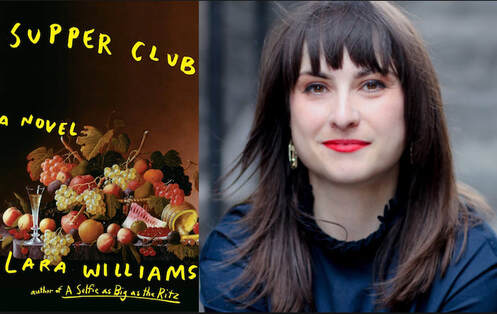
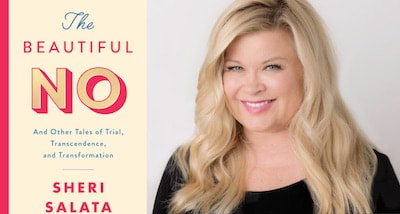
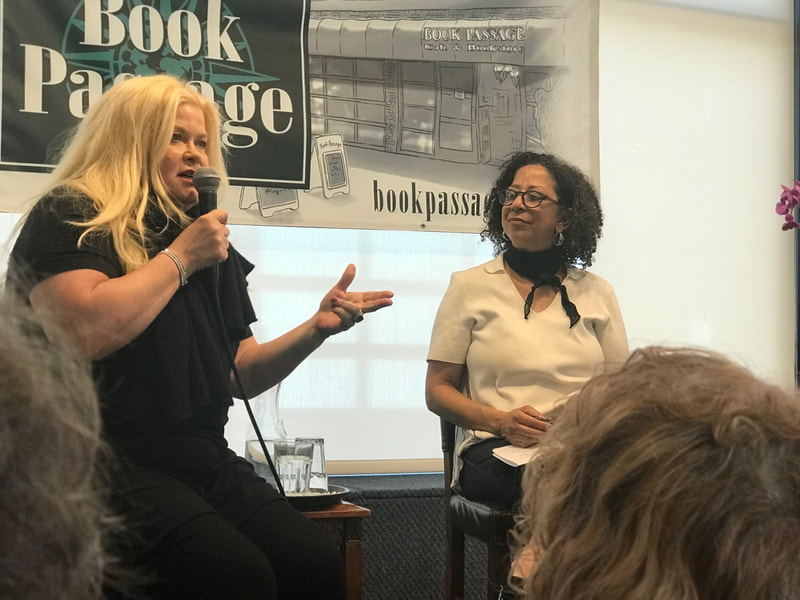
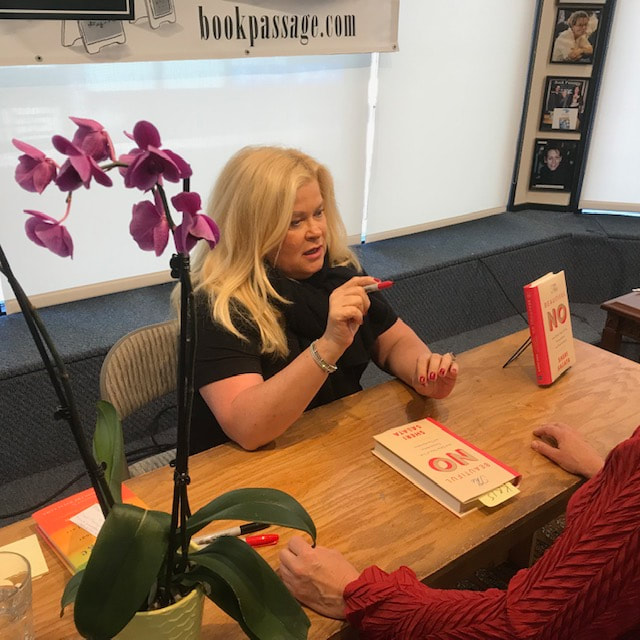
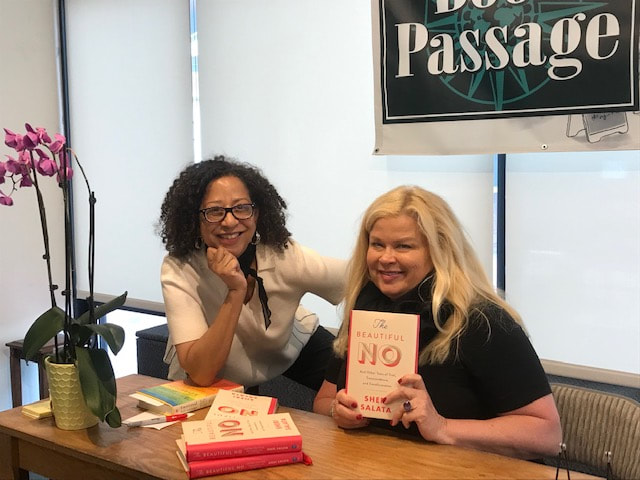
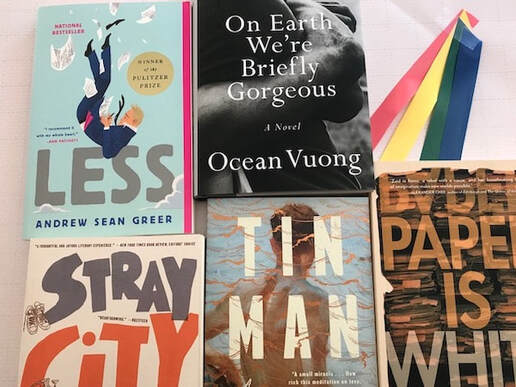
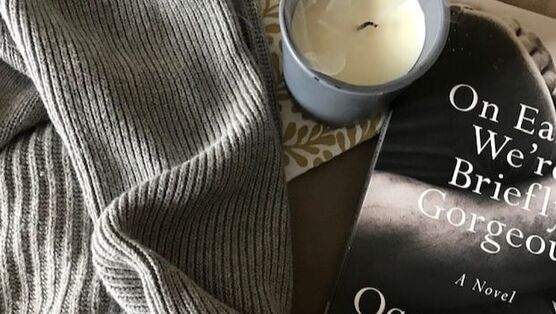
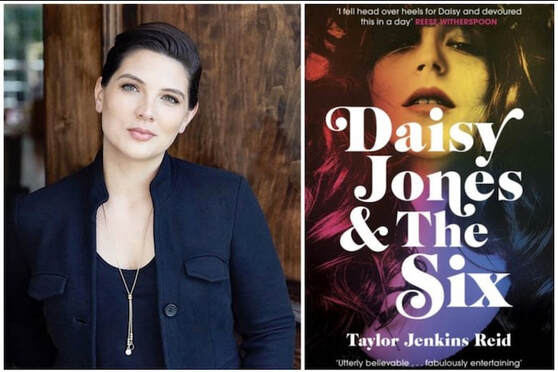
 RSS Feed
RSS Feed